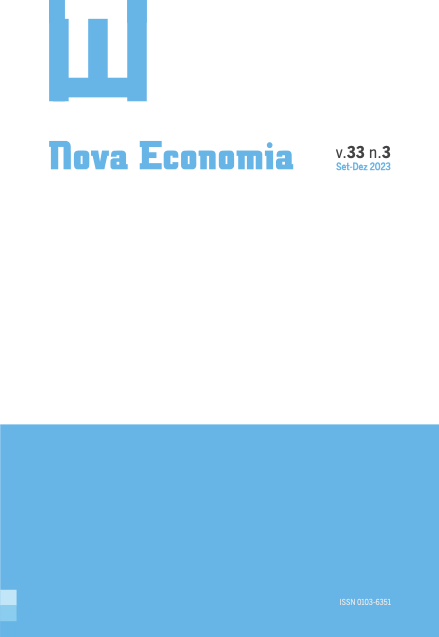Economic growth combined with increased purchasing power: The effects of a policy of increasing the minimum wage on the output
Abstract
This article analyzes the short-term economic effects of a 3.02% minimum wage adjustment based on a Social Accounting Matrix (SAM) for Brazil. The simulation exercises consider effects of income redistribution between different strata resulting from minimum wage increases by estimating the income multiplier effect, which uses different propensities to consume for each stratum. The simulated valorization is equivalent to the sum of the GDP variations in 2018 and 2019, representing a real gain in the purchasing power of the minimum wage if the adjustment in 2020 and 2021 considered the rule in force between 2011 and 2019. The results indicate possible combinations of minimum wage adjustment and fiscal policy that generate a positive net effect on economic activity (e.g., solutions mainly affecting the top of the income distribution).
Downloads
Published
How to Cite
Issue
Section
License
Copyright (c) 2023 Marina da Silva Sanches, Gustavo Pereira Serra, Rikelme Duarte Gomes, Matias Rebello Cardomingo

This work is licensed under a Creative Commons Attribution 4.0 International License.
Authors who publish with this journal agree to the following terms:
- Authors retain copyright and grant the journal right of first publication with the work simultaneously licensed under a Creative Commons Attribution 4.0 International License that allows others to share the work with an acknowledgement of the work's authorship and initial publication in this journal.
- Authors are able to enter into separate, additional contractual arrangements for the non-exclusive distribution of the journal's published version of the work (e.g., post it to an institutional repository or publish it in a book), with an acknowledgement of its initial publication in this journal.
- Authors are permitted and encouraged to post their work online (e.g., in institutional repositories or on their website) prior to and during the submission process, as it can lead to productive exchanges, as well as earlier and greater citation of published work (See The Effect of Open Access).




